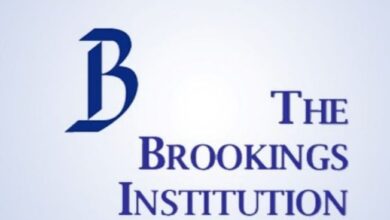How to choose a distance learning institution that works for you

As thousands of Students prepare to enrol in distance learning programmes this year, recognising the value of being able to ‘earn while you learn’, an education expert has urged them to ensure they do careful research to find the right institution and right course for their individual needs before parting with their money.

“There are countless distance learning institutions in South Africa, but many of them are fly-by-night colleges whose qualifications won’t add value to your CV. Others may be legitimate institutions, but lack the support structures that make for successful distance study,” says Elbie Liebenberg, Principal of Oxbridge Academy, which is part of JSE-Listed ADvTECH PTY Ltd, the largest private education provider in Africa.
Liebenberg says just as prospective students would carefully investigate their options before signing up for full-time study, so they should put in the time and effort to make the best choice for their future when choosing a distance learning programme and institution.
“Distance learning is taking off like never before, because of a range of factors: there is an increased demand for skills development given the tough competition for available positions, many people are not able to study full-time due to financial reasons, and others are not able to study at a full-time contact institution given the additional costs related to transport and accommodation.
“On the positive side, distance learning has evolved so dramatically given advances in technology, that it is a much more enjoyable and fruitful undertaking than it was even five years ago, so it is a real option for those who want to keep developing themselves and their careers.”
Liebenberg says there are a few boxes to check when investigating distance learning programmes and institutions. These are:
· CHECK THE REGISTRATION AND ACCREDITATION STATUS OF THE INSTITUTION & THE QUALIFICATION
“Before you choose a course, determine whether you need a credit-bearing course that is accredited, or whether a non-accredited short learning programme will suffice in helping you get the skills you need.”
Liebenberg says various institutions and courses require different types of registration and accreditation, and a prospective student should make sure they understand what that would entail for their chosen institution and qualification.
· MAKE CONTACT ON VARIOUS PLATFORMS TO GET A FEEL FOR THE INSTITUTION
“Visit the institution’s website to search for information about their courses and their track record. If you don’t get the information that you are looking for relatively easily, or if navigating the website is cumbersome, that is a red light in terms of how engaging with their platforms will be in future,” warns Liebenberg.
“Also, reach out via email or contact them telephonically to evaluate the level of service you are getting. If an institution does not give prompt feedback and answer your questions timeously, then you already have a good indication of the level of service you can expect from them.”
· DON’T BE SHY TO ENGAGE IN SOME SOCIAL MEDIA STALKING
Does the institution have active and responsive social media profiles? Do they have a substantial number of followers and is there regular activity on the page? Is their social media presence professional? If you can answer all of the above in the affirmative, it is a good indicator that they are established and won’t disappear overnight.
· FIND OUT WHAT SUPPORT STRUCTURES ARE IN PLACE
The success or failure of distance learning students is very closely linked to the support services an institution offers, says Liebenberg.
“You have to check the range and methods of contact available on various platforms,” she says.
“Check whether they have policies regarding turnaround time for queries and marking of assignments, as that would give you an idea of what to expect. Do they have student portals and online support services, and are their student support tutors suitably qualified? And finally, does the institution make an effort to support, motivate and inspire their students via social media and blogs, and do current students interact (mostly positively) on these platforms?”
· UNDERSTAND THE TOTAL IMPACT ON YOUR POCKET
Make sure that the institution is 100% upfront about the costs involved. They have to be able to tell you not only what your fees will be, but also what other expenses you may likely incur. If they are not forthcoming about additional costs such as exam fees, library fees or textbooks, you might find yourself significantly more out of pocket than you budgeted for.
“Do your homework by researching the institution online and especially by speaking to current and former students,” Liebenberg advises.
“Distance learning is an exciting and potentially very rewarding undertaking, but choosing an institution whose qualifications are not worth the paper they are written on, or whose processes are still stuck in 2006, will ultimately lead to disappointment.”




